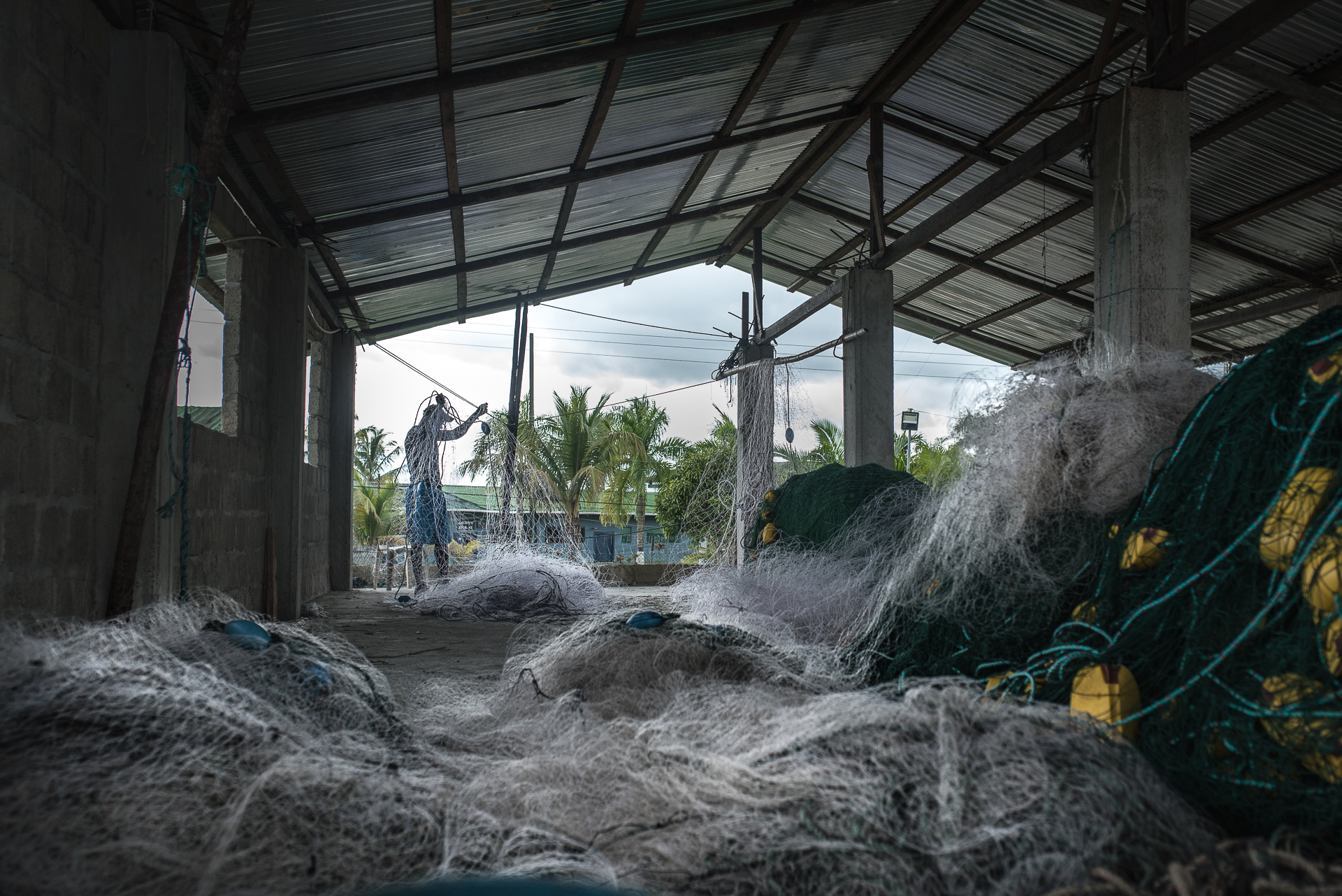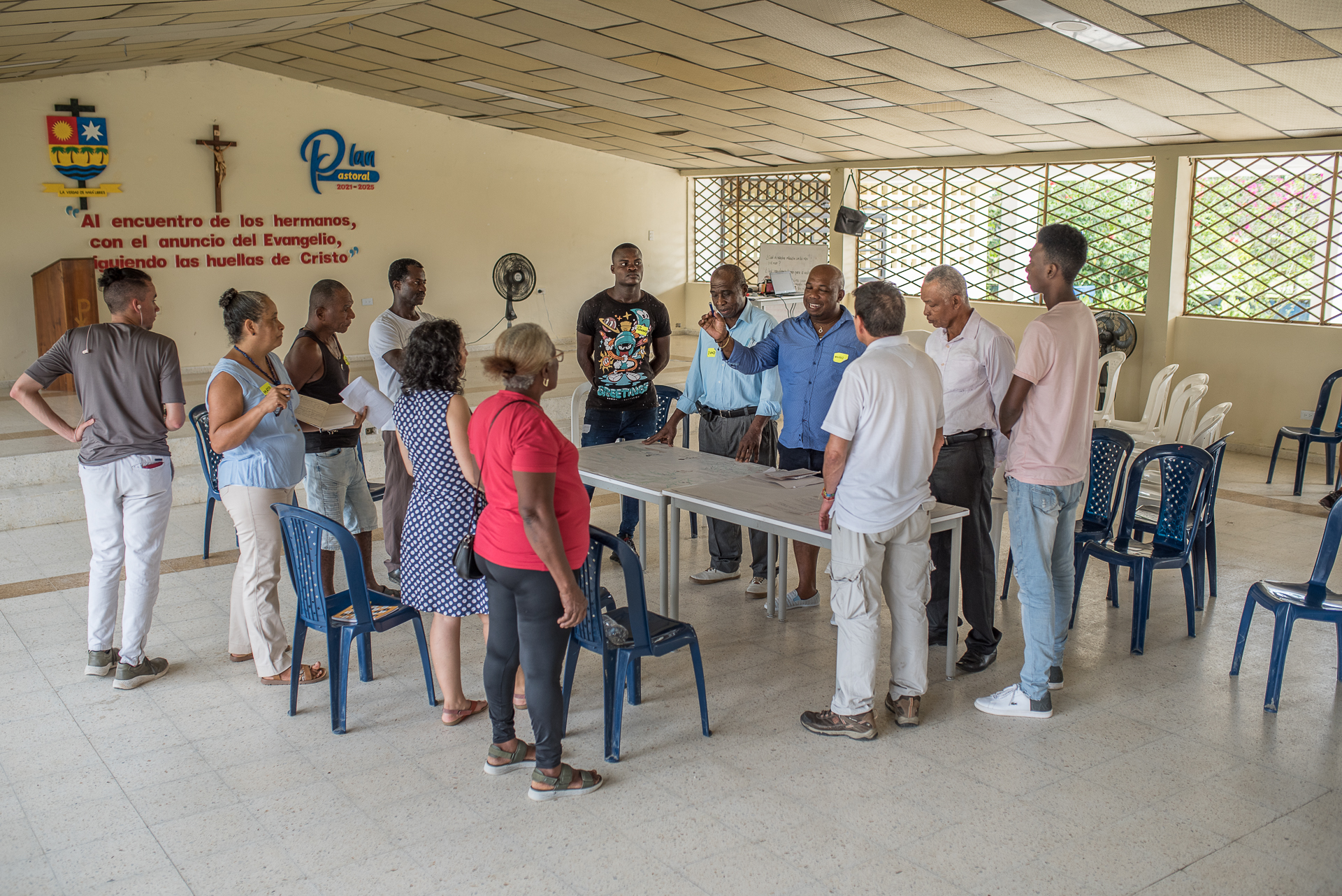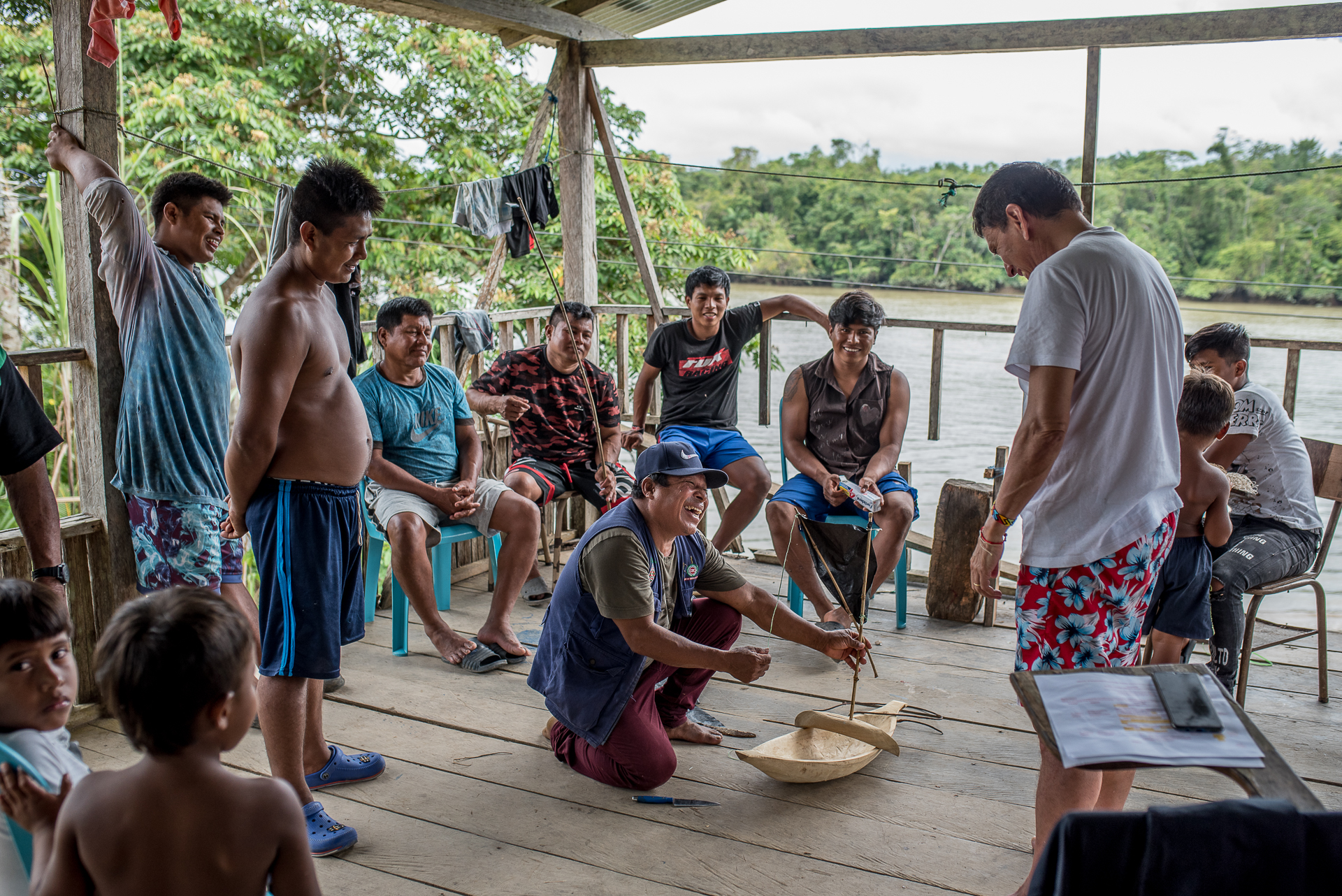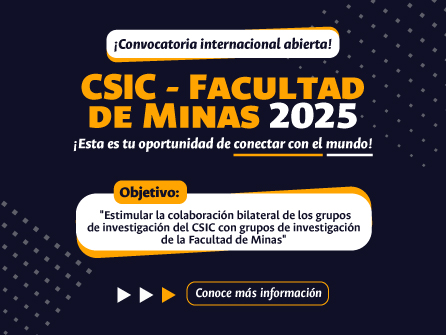In 2021, the project "Econavipesca of the Pacific: Ecosystem for sustainable fishing navigation in the municipality of Guapi, Cauca" was launched as an initiative led by the National University of Colombia, from the Medellin and Palmira headquarters, together with the University of Cauca, and the participation of the fishing associations Aservipesca, Renacer Guapireño, and Asociación Nueva Bellavista, in alliance with the Swedish International Development Cooperation Agency (SIDA) and the Universities of Lund and KTH of Sweden.

Restoration and preparation process of fishing nets in the municipality of Guapi, Cauca.
Located on the Pacific coast of Cauca, the municipality of Guapi is a territory where the Afro population predominates (84%), but it is also inhabited by indigenous and mestizo populations. With an area of 2,688 km², an elevation above sea level of 5m, and an average temperature of 29° C, Guapi is considered a territory where agriculture, mining, handicrafts and, mainly fishing, are the primary economic activities of its population, which amounts to approximately 30,759 inhabitants. According to DANE data, 759 inhabitants, including men, women, and children live in one of the areas of the department of Cauca with the highest percentage of Unsatisfied Basic Needs (UBN) with an index of 67.45%, where only 30% of the population has a water and sewage system, and only 50% have access to electricity.
Guapi can only be reached by air from the city of Cali or by water from Buenaventura, a trip that can take four to five hours by speedboat. Artisanal fishing is one of the main socioeconomic activities of the municipality and is a fundamental contribution to the economy and food security of the population. However, despite being an activity that has been included in territorial and departmental development plans for decades, artisanal fishing in the municipality has not had sufficient progress to become a respectable occupation of interest to the new generations.

Participatory activity carried out during the month of November 2021 with fishing associations and fishermen from the municipality of Guapi, Cauca.
Artisanal fishing is currently a trade that faces multiple problems associated with the socioeconomic context described above, the presence of illegal economies, and the armed conflict that has historically affected this area of the country. Another factor that has also had an impact is the welfare conception of the projects and programs implemented in the territory, these being initiatives that have promoted the delivery of support without having a genuine understanding of the process and the empowerment of the fishing sector.
A project with a territorial approach
Based on the described reality, the project "Econavipesca of the Pacific: Ecosystem for sustainable fishing navigation in the municipality of Guapi, Cauca" was formulated as an initiative that seeks, in coordination with the community, institutions, and fishing associations, to promote a process of territorial innovation and co-creation that promotes the sustainability of artisanal fishing, taking into account the organizational, economic, social, and environmental factors necessary to create a process that lasts over time and that is appropriated by the same community members who participate in it.
Founded on the methodological principles reviewed and permanently fed back with the institutions participating in the project and the community, namely: creativity, teamwork, shared learning, shared leadership and power, and the valuation of error when materializing. The Econavipesca project promotes horizontal participation scenarios based on open innovation and co-creation, where the dialogue of knowledge (scientific and traditional) and the recognition of the life experience of the participants are fundamental elements for a true appropriation and collective construction of knowledge and contextualized decision making in the implementation of the objectives of the process.
The objectives of the project are the development of a sustainable value chain model associated with artisanal fishing in the municipality, the design and construction of a boat propelled by renewable and hybrid energies, and the development of a business plan articulated with the social enterprises of the territory.

Conversation with the Eperara Siapidara indigenous community regarding navigation methods in the municipality of Guapi, Cauca.
2021 - The challenge of moving forward amid a pandemic
One of the great challenges and qualities of Econavipesca of the Pacific is the integration of various institutions and actors in the development of the project, a feature that has multiple implications ranging from the administrative and contractual level to the permanent integration of professionals from different areas of knowledge with different but complementary methodologies, tools, and interpretations of the context and reality.
2021 was a year of acknowledging the project's team and identifying methodologies and work rhythms. Progress was made in the characterization and creation of a value chain scheme; the project’s visual identity was also developed in agreement with the community as an important element to integrate and strengthen their sense of belonging.
During the first semester of the year, progress was made by teams in the bibliographic search and the consolidation of data and information from various sources that would strengthen the understanding of the context and the planning of activities to be developed during the first field trip.
With regards to remote work with the community, virtual sessions were held with some members of the associations; however, this work modality, although it was a way of advancing amidst the pandemic, presented several difficulties due to the poor connectivity in the municipality.
In terms of field trips, two collective visits were made between the Universidad Nacional and the Universidad del Cauca. In addition, there were some specific visits for the development of activities with the community, carried out by project work teams or groups of professionals.
During the second semester of 2021, biweekly meetings were also held to present progress and results; topics such as gender violence, ethnographies and social characterization, oceanography and environment, logo design, gender violence, value chain, naval ship design, and naval power systems were also discussed. In addition to these meetings, we also worked remotely with the community on topics such as equity and gender violence.
2022 - Consolidate and materialize what has been learned
There are many challenges for the project in 2022. Besides continuing to build trust and a sense of belonging with the community, the first challenge for this interinstitutional and interdisciplinary process is to continue strengthening the integration of the work team, building bridges, generating agreements, and weaving a collective management that will result in the consolidation of a horizontal dialogue process to consolidate the results of the project and its sustainability.
On the other hand, during this year we expect to consolidate the information required for the configuration of the value chain associated with artisanal fishing in Guapi and the necessary elements to finalize the conceptual design of the hybrid energy-powered boat, posing the question on how it will be managed by the community members and the associations once it is built. Finally, by mid-year, the business plans specified in the project's objectives are expected to continue to take shape.
Author
Project Econavipesca of the Pacific






